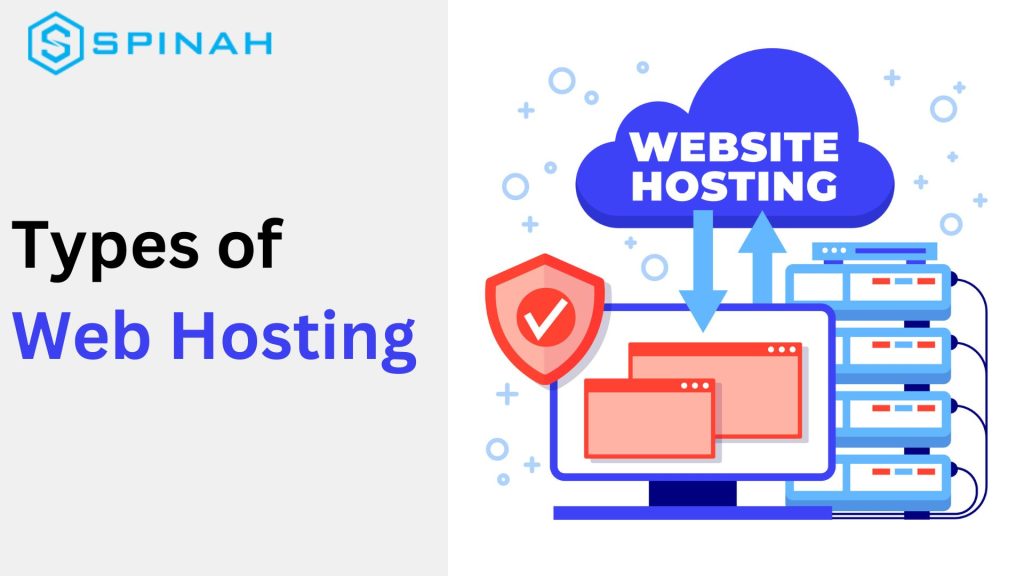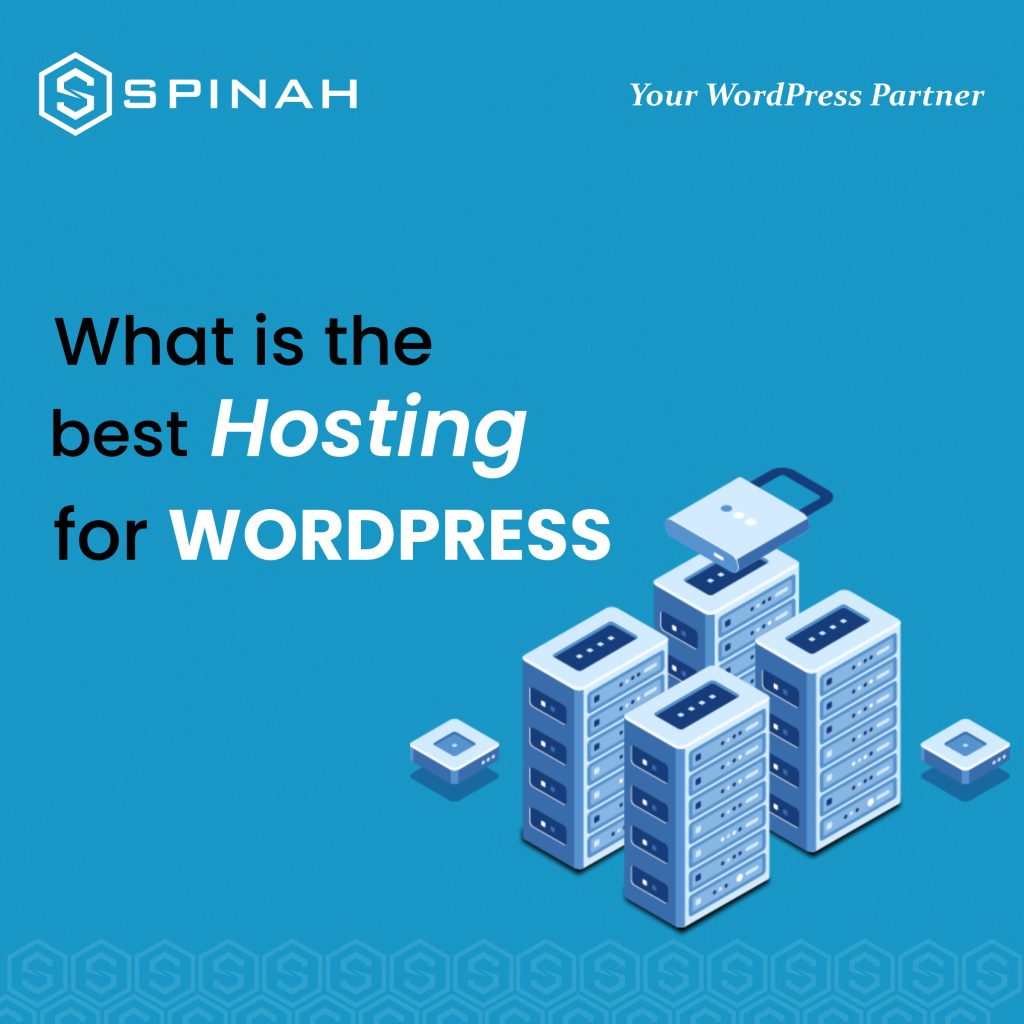8 Different Types of Web Hosting to Consider for Your Website

If you are considering the idea of having a website, the first step is to choose a web host. This guide details what you need to know!
Web Hosting Account: How it Works and Everything You Should Know
Thinking of opening a website and wondering what a web hosting account is? Find out now in this informative guide
A Comprehensive Guide to Choosing the Right Web Hosting Service for Your Needs

Choosing the right web hosting service for your needs is an integral decision you should consider carefully when building a website. An efficient and reliable hosting platform can mean the difference between having a successful online presence and having a website without the necessary reach or speed. Granted, you require a successful online presence and speed, but that’s not all. You also need web hosting that provides flexibility and scalability. This comprehensive guide will delve into areas such as pricing, customer support, hosting options, uptime guarantees, API integration options, and much more. Exploring this guide is a great way to make sure you make the best choice for the growth of your digital business. So, let’s get started! Analyze Your Needs Before you start looking for a hosting provider, you must first analyze your website’s needs. What type of website are you creating? For instance, will it be a blog, eCommerce store, portfolio website, or something else? If you are creating an online shop, you need to ensure the hosting provider offers all the necessary tools to build and run an online store. If you’re building a portfolio website, look for features like drag-and-drop page building and customizable templates. Furthermore, you also need to consider the disk space and bandwidth required. For example, if you expect a lot of traffic, you’ll want to ensure that your hosting plan offers unlimited bandwidth or at least an allotment that meets your needs. Once you know your website’s requirements, it will be easier to narrow down the list of potential hosting providers. Determine the Type of Hosting You Need Now that you’ve analyzed your website’s needs, it’s time to determine which hosting plan best suits them. Once you know your website’s requirements, narrowing the list of potential hosting providers will be easier. Several hosting plans are available; therefore, choosing the best that meets your needs is vital, as this will ensure your website’s success. Let’s quickly take you through the types available and, of course, look at the pros and cons of each type to have comprehensive knowledge about them. 6 Types of Web Hosting Available Here is a breakdown of the various types of web hosting. Share Hosting Shared hosting is a type of web hosting service that involves multiple websites sharing a single physical server and its resources, including storage space, processing power, and bandwidth. This means multiple users use the same server, storing each website’s data in a shared location. Shared hosting is an affordable option for individuals and small businesses that do not require a lot of resources or have a limited budget for web hosting. It is also a popular choice for new websites that are just starting and have low traffic volumes. With shared hosting, the costs are shared among all users, making it more cost-effective than other types of hosting. One of the advantages of shared hosting is its ease of use. The hosting provider handles all the technical aspects of server maintenance, security, and updates. Users do not need technical knowledge or expertise to operate the hosting service. The hosting provider manages all the necessary software and hardware, allowing users to focus on their website’s content. However, there are some disadvantages to shared hosting. Because multiple users share the same server and its resources, there may be performance issues when one website uses more resources than it should, causing other websites on the same server to slow down or crash. Additionally, shared hosting is less flexible than other types of hosting, such as VPS or dedicated hosting, because users cannot install their software or make changes to the server’s settings. Virtual Private Server (VPS) Hosting Image Source: FreePik Virtual Private Server (VPS) hosting is a type of web hosting where a physical server is divided into multiple virtual servers, each with its own resources, operating system, and software. VPS hosting is less expensive than dedicated hosting and gives you more freedom, control, and security than shared hosting. For example, a simple and basic WordPress website can be run on a single-core VPS with 1 GB of RAM. A more complex website like an eCommerce store may need a multi-core VPS with 8 GB of RAM or even higher. The biggest advantage of VPS hosting is its scalability. The server can be upgraded to meet the website’s needs as traffic and storage needs grow. This flexibility allows you to easily add resources without switching hosting plans or providers. Furthermore, users can customize their VPS with specific software, resources, and configurations and have root access to their virtual server. VPS hosting is suitable for websites with moderate to high traffic volumes and resource requirements, as well as those that require custom software installations and configurations. Cloud Hosting When we are talking cloud hosting, it is different from many other types of hosting because it does not involve a single physical server. A system known as cloud hosting distributes resources across numerous servers linked together by the internet. This type of hosting offers several advantages, including scalability and reliability. Cloud computing can be used for many things, like hosting a website or managing a database. Cloud hosting offers more flexibility and scalability than VPS hosting, as users can easily upgrade their resources without migrating from one server to another. Additionally, cloud hosting is more reliable; if one server goes down, other servers in the cloud are still online. Cloud hosting comes with higher setup fees and monthly costs than shared or VPS hosting; however, it can be very cost-effective if your website needs to scale quickly and require more resources. Dedicated Hosting We have successfully explained what cloud hosting is; let’s now look into dedicated hosting. Dedicated hosting involves one physical server with all its resources devoted to a single user or organization. In addition, dedicated hosting is suitable for high-traffic websites and complex applications requiring additional resources beyond VPS and cloud hosting. Dedicated servers are more secure than other types of hosting since all the resources
Introduction to Cloud Server Hosting: What is it and How Does it Work?

More and more businesses are using cloud hosting solutions to make their systems more scalable, flexible, secure, reliable, and cost-effective. Whether you’re just starting a new venture or looking to upgrade existing infrastructure, the advantages of cloud servers are hard to ignore. Read on for an in-depth look at cloud hosting services—from understanding the terminology and benefits to finding reliable providers, get ready for all the knowledge you need about moving your data into the proverbial clouds. Let’s dive in. Cloud Server Hosting and How it Works Cloud server hosting is a web hosting that utilizes a network of remote servers, also known as a “cloud,” or virtual server, to store and manage website data, unlike known on-premises servers or traditional servers. Instead of hosting a website on a single physical server, cloud hosting stores and manages data on a network of servers. Cloud hosting is a popular option for businesses and organizations that want a flexible and low-cost way to host their websites. Because the cloud comprises multiple servers, if one fails or experiences technical difficulties, the website can still function because the data is stored on and accessed from multiple servers. This provides greater uptime and reliability compared to traditional single-server hosting. To use cloud server hosting, website owners typically sign up for cloud hosting plans with a cloud hosting provider. The provider will then set up and manage the cloud plan infrastructure and resources, allowing the website owner to focus on building and managing their website. Cloud server hosting stores website data on multiple servers within the cloud. When a user visits a cloud host’s website, the data is retrieved from the cloud and displayed to the user. The hosting company always checks and fixes the cloud to ensure it works well and runs smoothly. Types of Cloud Servers Cloud hosting platforms come in different varieties, depending on the user’s needs. Some of the most popular types include: Public Server Public networks or servers are a type of cloud service that is available to anyone with internet access. These servers are hosted in a virtual or cloud environment and provide users with an easy and cost-effective way to store, process, and access data from anywhere in the world. This allows businesses to scale their computing infrastructure while reducing hardware acquisition costs. Some examples of public cloud servers are AWS, IBM Cloud, Microsoft Azure, and Google Cloud Platform. Unlike traditional servers, a public server offers enterprises a wide range of services and features that can help them quickly build applications without needing to manage physical infrastructure. Private Server Private servers are hosted in a secure, private environment owned by a single organization or individual. These servers usually store susceptible data and are accessed exclusively by authorized personnel. Additionally, these cloud servers provide businesses with flexibility in terms of scalability and resource allocation. Unlike public cloud servers, users of private cloud hosting are not subject to the demands of other users and can customize their environment according to their needs. Hybrid Server Hybrid cloud services are the perfect blend of local and cloud servers and offer both advantages. A hybrid cloud service combines the cost-effectiveness of on-premise hardware with cloud-based services’ reliability, scalability, and agility. For example, businesses can choose to use a private cloud for their internal applications that contain sensitive data while also using public clouds from AWS or GCP for web apps and production workloads. Hybrid cloud services also allow businesses to integrate data stored in multiple siloed systems into a single user interface, ensuring quick access and ease of use. Consequently, hybrid cloud service models have become the go-to solution for many businesses seeking the best of both worlds. Multi-Cloud Server Multi-Cloud is a cloud computing service delivery model that allows organizations to mix and match services from multiple cloud vendors. Instead of relying solely on a single cloud provider, businesses can reduce risk, optimize costs, and improve performance by utilizing services from multiple cloud providers. For example, Amazon Web Services might be used for web hosting while Microsoft Azure provides databases or media storage, or each vendor could provide specific components of a single application. By structuring their system in this way, businesses can take advantage of the different strengths that each provider offers, such as advanced features or cost savings. Cloud Service Models Cloud services are online solutions or virtual machines that enable businesses to store and access data and applications through the internet. This can include anything from email hosting, web hosting, file storage, software as a service (SaaS), platform as a service (PaaS), or infrastructure as a service (IaaS). Software as a Service (SaaS) Software as a service (SaaS) is a revolutionary way of providing access to software applications. With SaaS, users don’t have to purchase or install software on their devices. Instead, the system is cloud-based, allowing users to rent and access the program from any device with a secure internet connection. This makes SaaS reliable, cost-effective, and efficient for businesses and individuals. Furthermore, with SaaS, the user can always count on having access to the latest software version, eliminating the need for costly upgrades or replacements. This cutting-edge technology simplifies workflows and increases productivity while protecting valuable data through continuously updated security protocols. Investing in software as a service helps ensure hassle-free software management in the future. Platform as a Service (PaaS) Platform as a Service (PaaS) is the foundation of modern digital developments. It enables companies to develop, manage, and launch applications quickly and efficiently. PaaS allows customers to focus on creating their applications while completely outsourcing all the hardware and software operations to cloud vendors. This equates to less money spent on hardware investments and IT improvements, with more storage resources available for developing business applications without worrying about infrastructure scalability or availability. With features like serverless computing, continuous integration, and delivery pipelines, developers can deploy faster than ever before. Businesses can stay ahead of the competition by being open to new ideas and using up-to-date
7 Best WordPress Hosting Services for Your Websites

Today, WordPress has grown to be the most popular content management system. It has been used to build and manage websites and blogs. Beginners can start with WordPress. It is the best blogging platform and website creation tool. To help you out, we’ve compiled a list of the seven best WordPress hosting providers. Each provider offers something unique, from reliable shared hosting to powerful managed WordPress hosting. So regardless of your website’s size or the goals you have for it, you’ll find a provider that can meet your needs. In this blog post, we’ll take an in-depth look at the seven best WordPress hosting services and explore why each could be the perfect fit for your website. Hosting Services Best Free Plan Cheapest plan (monthly plans) Rating from users (G2/, Capterra) Kinsta Managed WordPress Hosting Service No $35 per month G2: 4.8/4.5Capterra: 4.9/5.0 SiteGround Hosting and outstanding support No $3.99 per month G2: 4.1/5.0Capterra: 4.6/5.0 Bluehost Leading web hosting solutions company No $2.95 per month G2: 3.6/5.0Capterra: 4.2/5.0 Hostgator Website builder for bloggers and small businesses No $2.75 per month G2: 3.6/5.0Capterra: 3.9/5.0 Hostinger Shared hosting providers No $1.99 per month G2: 4.1/5.0Capterra: 4.6/5.0 WP Engine Reliable WordPress hosting No $20 per month G2: 4.6/4.5Capterra: 5.0/5.0 GoDaddy Domain provider and web host No $8.99 per month G2: 4.2/5.0Capterra: 4.2/5.0 Kinsta Kinsta is a managed WordPress hosting service designed for high-performance websites. It is powered by the Google Cloud Platform and provides a secure and reliable platform for hosting WordPress sites. Kinsta offers a range of features, including automated backups, PHP 7 support, and a custom caching system designed to improve website performance. Features Pros Cons Pricing Bluehost Endurance International Group is the owner of the web hosting business Bluehost. It ranks among the top 20 web hosts and hosts over 2 million domains alongside its sister firms, FastDomain, iPage, and Hostmonster. Bluehost offers shared VPS, cloud, and dedicated hosting plans and domain registration services. Features Pros Cons Pricing SiteGround SiteGround is a web hosting company that provides shared hosting, cloud hosting, dedicated servers, and reseller hosting services. It also provides domain registration, SSL certificates, and other web hosting services. SiteGround is known for its reliable and fast services, with a 99.99% uptime guarantee and 24/7 customer support. Features Pros Easy-to-use Control Panel: It offers a user-friendly control panel that makes it easy for customers to manage their hosting account and website. The control panel usually has tools for managing databases, email accounts, and other parts of the hosting service. Free Site Transfers: which means that they will assist in transferring your website from your current hosting provider to SiteGround at no extra cost. This is useful if you wish to change hosting providers or if you have multiple websites and wish to consolidate them into one account. Fast, Reliable, and Secure Hosting: fast loading times are important for user experience and search engine ranking. Reliability means that your website will be up and running with minimal downtime. Security is important to protect your website and your visitors’ data from malicious attacks. One-click installer for WordPress and Joomla: SiteGround offers a one-click installer for WordPress and Joomla, which makes it easy to install and set up those popular content management systems (CMS) on your website. This lets you set up a website quickly without having to upload files and create databases by hand. Free Daily Backups: It automatically creates backups of your website’s files and databases every day and stores it for 30 days. This enables you to restore your website in the event of data loss or if you need to undo changes you made. If you back up your website every day, you’ll be able to fix it quickly and easily, so you won’t lose any data or work. Cons Pricing HostGator HostGator is a web hosting company that provides various services such as shared hosting, reseller hosting, VPS hosting, cloud hosting, dedicated servers, and domain registration. HostGator offers a variety of features, such as unlimited disk space, unlimited bandwidth, and a range of easy-to-use site-building tools. Features Pros Cons Pricing Hostinger Hostinger is a web service that provides various hosting plans, including shared web hosting, VPS hosting, and dedicated servers. Hostinger offers a range of features and services, such as domain registration, website builders, email services, and more. Hostinger’s primary focus is on providing reliable, affordable, and user-friendly web hosting solutions to businesses and individuals. Features Pros Cons Pricing WP engine WP Engine is a WordPress hosting provider that provides managed hosting services for websites and applications built on the WordPress platform. WP Engine offers a range of hosting services, including shared, managed, and dedicated hosting, as well as a range of premium add-ons, such as advanced security, caching, and staging environments. WP Engine also provides extensive tools for monitoring, managing, and optimizing WordPress sites. Features Pros Cons Pricing GoDaddy GoDaddy Hosting is a web hosting service offered by GoDaddy, the world’s largest technology provider dedicated to small businesses. GoDaddy Hosting provides reliable, secure, and affordable hosting solutions for websites of all sizes. With features like unlimited storage, unmetered bandwidth, and a 99.9% uptime guarantee, GoDaddy Hosting makes it easy to get your website up and to run quickly. They also offer various add-on services, such as SSL certificates, domain privacy protection, and website security. Features Pros Cons Pricing Methodology for Choosing Best WordPress Hosting Website Studying is necessary in order to select the best WordPress hosting site, but don’t worry! There are some key factors that we can consider to help us make an informed decision. Let share with you a methodology that you can follow to find the best WordPress hosting website for your specific needs. Research Hosting Providers: Research different hosting providers that offer WordPress hosting services. You can use online resources like review websites, forums, and social media to find reliable hosting providers. Check for Performance and Uptime: Look for hosting providers that offer fast server speed and high uptime percentages. Check reviews

